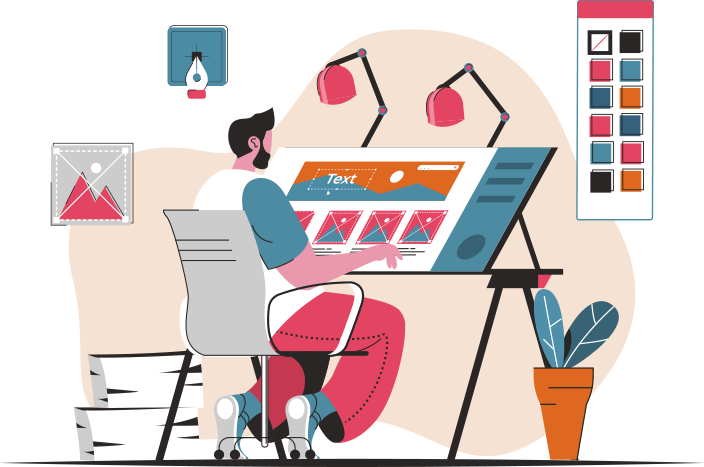
-
Table of Contents
Design Ethics: The Responsibilities of Designers

Design plays a crucial role in shaping our world. From the products we use to the websites we visit, design has the power to influence our behavior, emotions, and even our values. With this power comes great responsibility. Designers have an ethical obligation to consider the impact of their work on individuals, society, and the environment. In this article, we will explore the concept of design ethics and discuss the responsibilities that designers should uphold.
What are Design Ethics?
Design ethics refers to the moral principles and values that guide the decisions and actions of designers. It involves considering the potential consequences of design choices and ensuring that they align with ethical standards. Design ethics encompass a wide range of issues, including user privacy, inclusivity, sustainability, and the overall well-being of individuals and communities.
The Responsibilities of Designers
Designers have a unique position of influence and power. They have the ability to shape the way people interact with technology, products, and services. With this influence comes a set of responsibilities that designers should uphold:
- User-Centric Design: Designers should prioritize the needs and well-being of users. They should strive to create intuitive, accessible, and inclusive designs that cater to a diverse range of users.
- Transparency: Designers should be transparent about the intentions and consequences of their designs. They should provide clear information about data collection, privacy policies, and any potential risks associated with the use of their products or services.
- Privacy and Security: Designers should prioritize user privacy and security. They should implement robust security measures and ensure that user data is handled responsibly and in accordance with relevant laws and regulations.
- Sustainability: Designers should consider the environmental impact of their designs. They should strive to create products and services that are energy-efficient, use sustainable materials, and promote responsible consumption.
- Inclusivity: Designers should create designs that are inclusive and accessible to all individuals, regardless of their abilities, age, or cultural background. They should consider diverse perspectives and avoid perpetuating stereotypes or biases.
- Ethical Advertising: Designers should be mindful of the ethical implications of advertising. They should avoid deceptive or manipulative practices and ensure that advertisements are truthful, respectful, and do not exploit vulnerable individuals or communities.
Case Studies: Ethical Design in Action
Let’s explore some real-world examples of ethical design in action:
1. Apple’s Privacy Features
Apple has been at the forefront of prioritizing user privacy. With features like App Tracking Transparency and Privacy Nutrition Labels, Apple empowers users to make informed decisions about their data. By giving users control over their personal information, Apple sets a positive example for other companies to follow.
2. Airbnb’s Inclusive Design
Airbnb has made significant efforts to promote inclusivity in its design. The company introduced accessibility filters that allow users to search for listings that meet their specific accessibility needs. This feature ensures that individuals with disabilities can find suitable accommodations, promoting equal access and inclusivity.
3. Patagonia’s Sustainable Practices
Patagonia, an outdoor clothing company, has long been committed to sustainability. They prioritize using recycled materials, reducing waste, and promoting fair labor practices. By designing products with sustainability in mind, Patagonia sets an example for the fashion industry and encourages responsible consumption.
The Impact of Design Ethics
Design ethics have a profound impact on individuals, society, and the environment. When designers prioritize user needs and well-being, they create products and services that are more intuitive, accessible, and enjoyable to use. Ethical design also promotes inclusivity, ensuring that individuals from diverse backgrounds can access and benefit from technology.
Furthermore, ethical design contributes to a more sustainable future. By considering the environmental impact of their designs, designers can help reduce waste, conserve resources, and promote responsible consumption. This is particularly important in a world facing pressing environmental challenges.
Design ethics also have social implications. When designers prioritize inclusivity and avoid perpetuating stereotypes or biases, they contribute to a more equitable society. Ethical advertising practices help build trust between companies and consumers, fostering positive relationships and promoting responsible consumption.
Conclusion
Design ethics are essential for creating a better world. Designers have a responsibility to prioritize user needs, be transparent about their intentions, and consider the impact of their designs on individuals, society, and the environment. By upholding these responsibilities, designers can create products and services that are more intuitive, accessible, inclusive, and sustainable.
Through real-world examples and case studies, we have seen how ethical design can have a positive impact on individuals and society. It is crucial for designers to continuously educate themselves on ethical principles and stay updated on emerging trends and best practices in design ethics. By doing so, designers can contribute to a more ethical and responsible design industry.
Ultimately, design ethics should be an integral part of the design process. By considering the ethical implications of their work, designers can create designs that not only meet user needs but also contribute to a more inclusive, sustainable, and equitable world.
